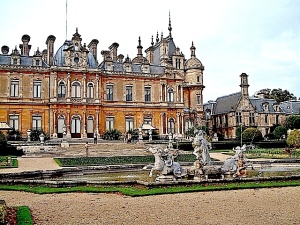 Many people come here from relatively small localities, from what for centuries were tiny towns, villages and countries. They arrive in Canada … and are staggered by the immensity of the land, the wealth of natural resources, the vast areas that have never seen a human footprint. Even the lakes are beyond their imagining. Lake Superior sees storms that rival the North Atlantic; you could drop Ireland into it and the Irish would sink without a trace, just a few shamrocks floating on the surface of the water.
Many people come here from relatively small localities, from what for centuries were tiny towns, villages and countries. They arrive in Canada … and are staggered by the immensity of the land, the wealth of natural resources, the vast areas that have never seen a human footprint. Even the lakes are beyond their imagining. Lake Superior sees storms that rival the North Atlantic; you could drop Ireland into it and the Irish would sink without a trace, just a few shamrocks floating on the surface of the water.
A few years ago a young friend from France came to visit us. She arrived in Kingston from which she took the train to Toronto. She stepped off the train and clutched my arm: “Is it … all the same lake?!” Lake Ontario, smallest of the five, and half the size of France.
Her trip from Kingston took almost three hours — on and on, forever, it seemed to her. I shrugged, the indifferent gesture of a native Canadian, and pointed west: “Three thousand more miles of it out that-away.” I casually chew a straw of Canadian hay. “Three times bigger than Europe. Twenty times bigger than France.” The Canadian yahoo points south. “There’s another couple of thousand miles down there that we rent to the Americans.”
•
Flying over the Rockies once, an hour or two before dawn, I looked down. Lost among the majestic mountains that seemed to span the entire world, I saw a single light, one spark of life in the darkness. Who could it be? I thought. Whoever it is, they’re 500 miles away from anything. It brought home to me the size, and potential loneliness, of the country. I was born and raised in the shadow of those great mountains, but the sight of that tiny light still made me gasp.
—————
Map © Digital Wisdom Inc.































